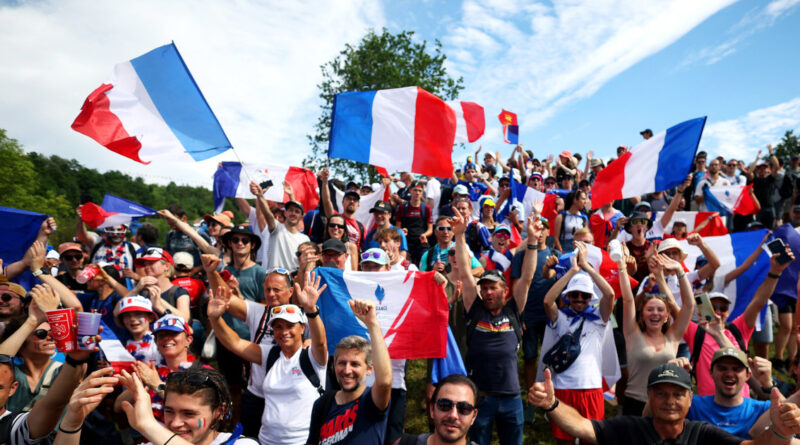A bitterly divided France comes together for the Paris Olympics
PARIS — Cries of “allez les blues” and spontaneous singing of “La Marseillais” have filled sports venues and the streets here in the French capital for more than a week now.
Coming shortly after a bitter national election and years of local skepticism over the Olympics, the joyful waving of the tricolor seems to have taken some locals by surprise.
“We are just one nation for this moment, from this moment. There is no politics,” architect Jérémy Boutier told NBC News outside a 3×3 basketball game. “It is very particular.”
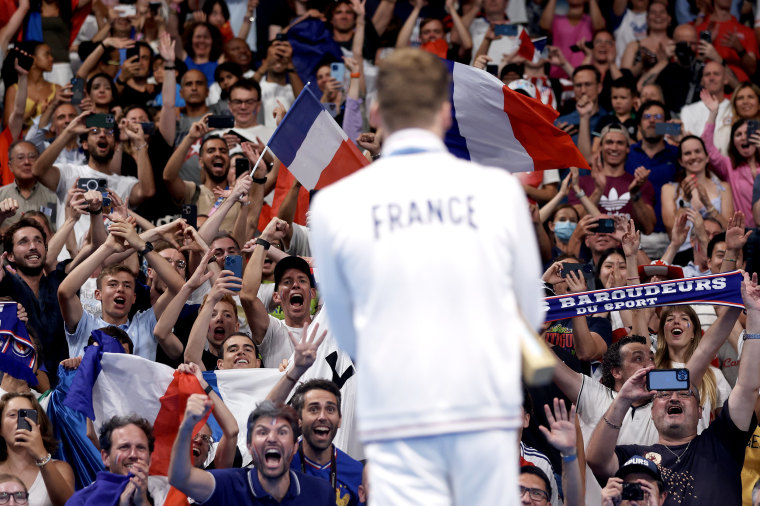
An empowered far right was prevented from forming a government during the second round of recent snap elections called by President Emmanuel Macron, but the country is still bitterly divided and unsure of its political future.But the far-right National Rally party’s unprecedented success was a rebuke of some of Macron’s most controversial policies, including pension plan and abolishing a tax on France’s richest, and came as many voters became disillusioned with politics as usual.
Follow along for live coverage
The party fed on anger about migration, pledged to fight a “cultural battle” against Islam, promoted a platform of “France for the French,” and supported policies that benefit the working class.
Little more than couple of weeks later, there has been an overwhelming show of patriotism at events and around the streets.
This grabbed the attention of U.K.-based French studies professor Martin Hurcombe, who specializes in French history and culture.
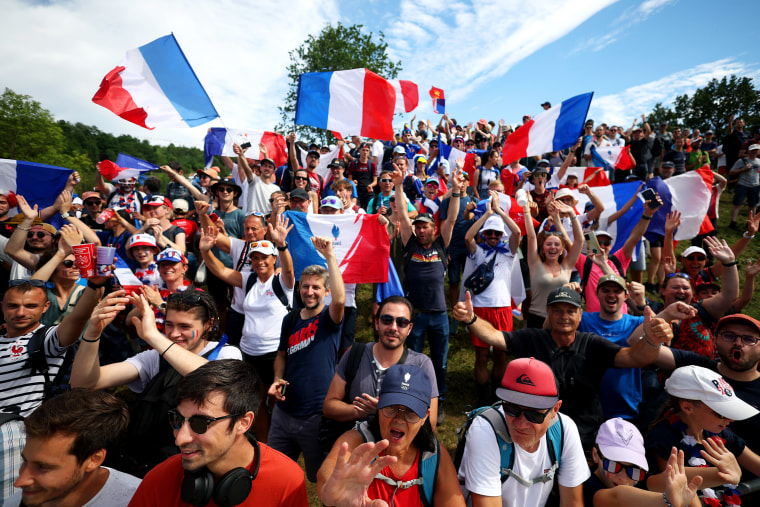
“That’s a really striking thing and I’ve heard that from other people as well,” Hurcombe, from the University of Bristol, said. “I’m watching it on TV, and it comes across even in on television.” This singular patriotic fervor could not have come at a more divisive time in French politics.
“What’s even more striking is the way that it seems to have unified France, precisely several weeks after they returned an election result which revealed the deep divisions in society,” Hurcombe said. “So it does come as a bit of a surprise.”
But French Sports Minister Amélie Oudéa-Castéra hasn’t been surprised.
“We already felt this kind of huge enthusiasm before, with other big events, like Euro or the World Cup,” she told NBC News at a 3×3 basketball game. “But with the Olympic Games, we feel an even stronger fervor that brings all the French together.”
French fans have been wildly cheering for their athletes and team throughout these Olympic Games.
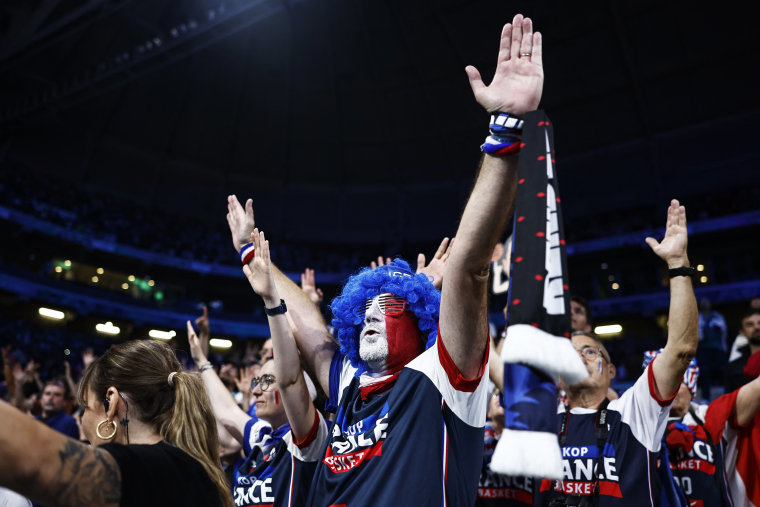
That’s certainly been seen at swimming events, where fervent fans have been blowing the roof off Paris La Défense Arena in support of Léon Marchand and his teammates.But even at much lower-profile events, like the badminton matches attended by 20-year-old student Tom Vanden Brande, fans are out in force for the bleu, blanc et rouge.
“At the first match involving French players, it was impressive and moving, especially when everyone was shouting at the same time, so you could feel the patriotism,” Vanden Brande said.
Yolaine Wilson, another 20-year-old student who checked out badminton, was stunned when her fellow fans broke into “La Marseillaise” — when French players were not even competing at that moment.
“Especially with everything that happened recently with the elections here, we have the impression that we’re all united, that it’s really the clapperboard that we’re moving on to something new,” she said.
Not so fast, Hurcombe said.
This moment’s era of good feeling and nationwide patriotism has been equated to the joy of 1998 when France won the World Cup on home ground.
That famous team included Zinedine Zidane, a star of opening ceremonies and son of Algerian immigrants, French West Indies-born Lilian Thuram, Ghana-born Marcel Desailly, New Caledonia-born Christian Karembeu and Patrick Vieira, who was born in Senegal.
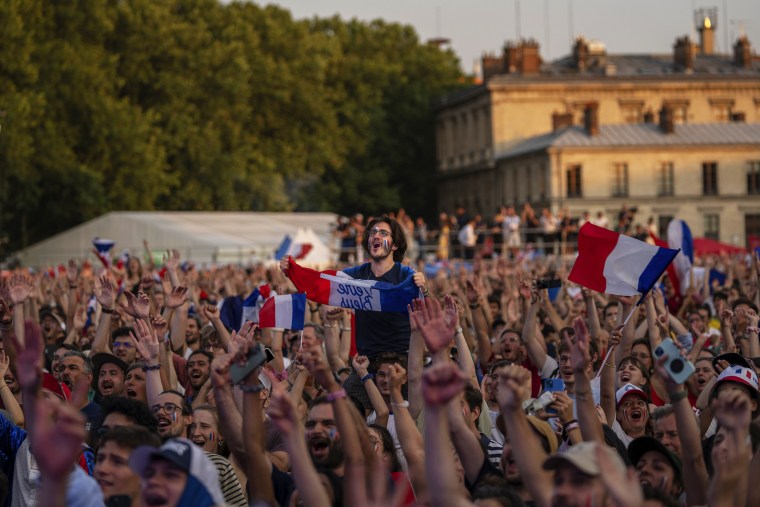
“There is an undercurrent of political divisions (now) that will resurface, because they are profound,” Hurcombe said.”We’ve been here before with France and sporting achievements. Everybody looked at the diversity of that 1998 team, the football World Cup champions, and said, ‘We’ve reached a turning point and perhaps France will recognize multiculturalism’ and I don’t think that really ever happened. I think it was a moment and there’s a risk with these Olympics, as well, that this is (just) a moment.”

